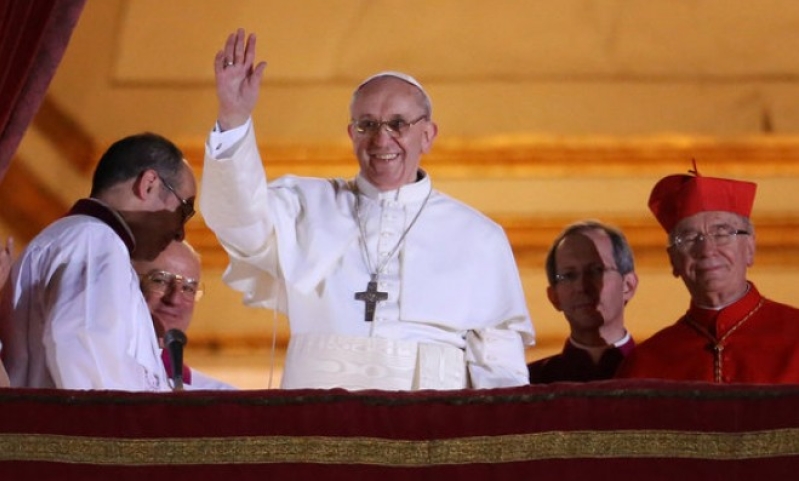
Pope Francis was introduced Wednesday night as the first non-European pope of the Roman Catholic Church in 1,200 years.
St. Peter’s Square packed, 100,000 people endured stead rain and cold temperatures as they waited the naming of the new pope.
As the 266th Pontiff, Francis, former known as Cardinal Jorge Bergoglio and his association with the marginalized in Argentina, has a different approach to leading the 1.2 billion-strong church, which contrasts to his predecessor Benedict, a seasoned theologian.
During his first day as pontiff on Thursday, Pope Francis stopped by his hotel to pick up his luggage and pay the bill himself, which contrasted to his predecessors who tended to stayed ensconced in the Vatican.
Moreover, Francis’ wardrobe choices were simple iron pectoral cross of his days as bishop simple white cassock of the papacy – eschewing the red cape that Benedict wore when he was presented to the world in 2005.
The difference in style was a sign of Francis’ belief that the Catholic Church needs to be at one with the people it serves and not impose its message on a society that often doesn’t want to hear it, said Sergio Rubin, Francis’ authorized biographer, in an interview with The Associated Press.
Rubin recalled how the former Cardinal Jorge Bergoglio would celebrate Masses with homeless people and prostitutes in Buenos Aires, Argentina.
“He believes the church has to go to the streets,” he said, “to express the closeness of the church and this accompaniment with those who are suffering.”
Francis, the first Jesuit pope, decided to call himself Francis after St. Francis of Assisi, the humble friar who dedicated his life to helping the poor.
In the last election in 2005, the 76-year-old Bergoglio is said to have finished second when Benedict was elected. The new pope is chosen on just the fifth ballot.
Prior to Francis’ election, the home to 40 percent of the world’s Catholic in Latin America has long been underrepresented in the church leadership.
Francis considers social outreach, rather than doctrinal battles, to be the essential business of the church. A doctrinal conservative, Francis has opposed liberation theology, abortion, gay marriage and the ordination of women, standing with his predecessor in holding largely traditional views.






